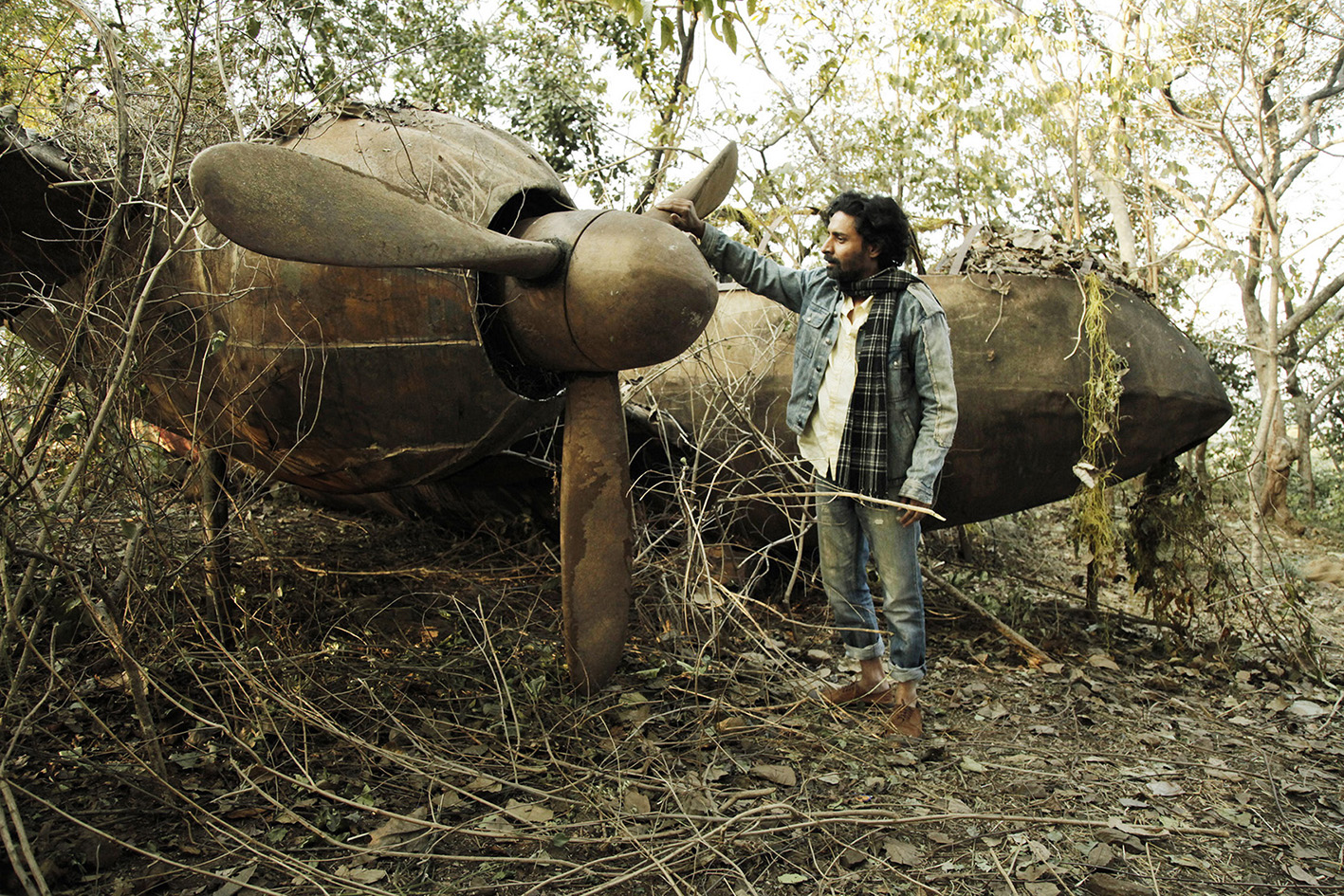“It is not good to dream. It can be harmful for people like us because who cares about our dreams?” says a ghost about Bachchu Mandal (Chandan Roy Sanyal), who is obsessed by the childhood dream of wanting to fly. He lives in a remote village with his loving wife (Parno Mitra) and small son (Harshil Das). The child in Bachchu is still there inside him and his work as a motor mechanic hardly makes a difference to his dream of flying. Then, one day, during his sojourn in the nearby forests, he discovers the remains of a World War II Japanese plane and his dream finally seems like it may just become a possible reality. Urojahaj (The Flight) follows the journey of this child-like, innocent and illiterate young motor mechanic.
Magic realism has turned into Buddhadeb Dasgupta’s brand identity, which sometimes tends to dominate and overpower the very core of his narrative. But in Urojahaj, he keeps this well under control. When he does turn to it such as when the friendly ghosts who appear in the jungle to make friends with Bachchu Mandal, their sudden appearance near the small stream is choreographed like a silent mime performance and offers a solid and lyrical sub-plot to the main story. It also brings across some philosophical but tragic truths of life. One female ghost says that she faded away into death because of loneliness and is afraid that if she were to be born again, she might die all over again of loneliness. Another man says he always used to dream of gulping mounds and mounds of rice and he had no idea why he had that dream. A third confesses that life is beautiful and it is truly wonderful to be alive but he chose to die which was a wrong choice.
Dasgupta radically changes the concept of home as fixed to a definite place by creating a wall that turns into a room whenever Bachchu and his wife are making love or chit-chatting or lying down together, putting forth the message that home can be any place where you are with your loved ones and not alone. This is a beautiful add-on. The poetic metaphors of long, head-gear wearing folk artists moving in the distant horizon and the toy seller walking across are redundant even if they are expressed as visual metaphors of the versatility of dreams. When Bachchu is working on the plane he thinks he possesses because he has found it, two trees keep moving behind him as if guarding him from encroachers. This is a moving touch. As Bachchu buys or borrows equipment to put the plane back in order, his boss is convinced that he is mad. His son is sad that his father does not take him to school but Bachchu is not bothered. He must put the plane together and make it fly, promising his wife and boy that they will all fly on it and go to other lands.
The politics of ownership, possession and dispossession comes across in the interaction between Bachchu and the police. When the top officer asks him, “Who owns this land?” accusing him of having appropriated a plane that ought to belong to the government, Bachchu hesitantly asks, “Is this not our land?” The officer blandly says that the sky, the rivers, the lands all belong to the government and so does the plane, which makes for a sharp barb directed at the present political ambience of the country. The scene where Bachchu’s little boy is trying his best to stop the police from breaking the door of their hut is poignant to say the least.
Chandan Roy Sanyal in the lead role just carries the entire film on his very committed shoulders – he is that excellent. The fact that he is not a huge star makes the entire film much more convincing than it would have if Dasgupta would have opted for a matinee idol. Parno Mitra has a small role of Bachbut does it well. The little boy, Harshit Das, is wonderful. Sudipto Chatterjee as Bacchu’s boss is also convincing.
The music, minus songs except for some lines of a folk chorus by Alokananda Dasgupta, is brilliant, blending perfectly into the story and its characters, creating a soft mood in what is essentially a poetic film. The cinematography beautifully captures the forest scenes, the cloud-dotted sky, the ghosts whose faces are kept vague by design, vignettes of Bachchu’s domestic life and his garage very well including the dark city scenes where Bachchu goes hunting for equipment. The editing is smooth and seamless as it ought to be but above all, the production design is exemplary. Especially for creating the entire structure of the wrecked plane which also evolves with the film’s narrative flow as when Bachchu paints it with his child-like designs.
The only minor glitch lies in the dialogue delivery by all the characters who speak in very urban Bengali without any rural accent which does not quite fit into this film’s ambience. The closure is mesmerising and something you take with you long after you are out of the theatre. All in all, Urojahaj is a wonderful film by Dasgupta, made even more commendable due to the fact that he shot the entire film while he was very sick.
Bengali, Drama, Magic Realism, Color


